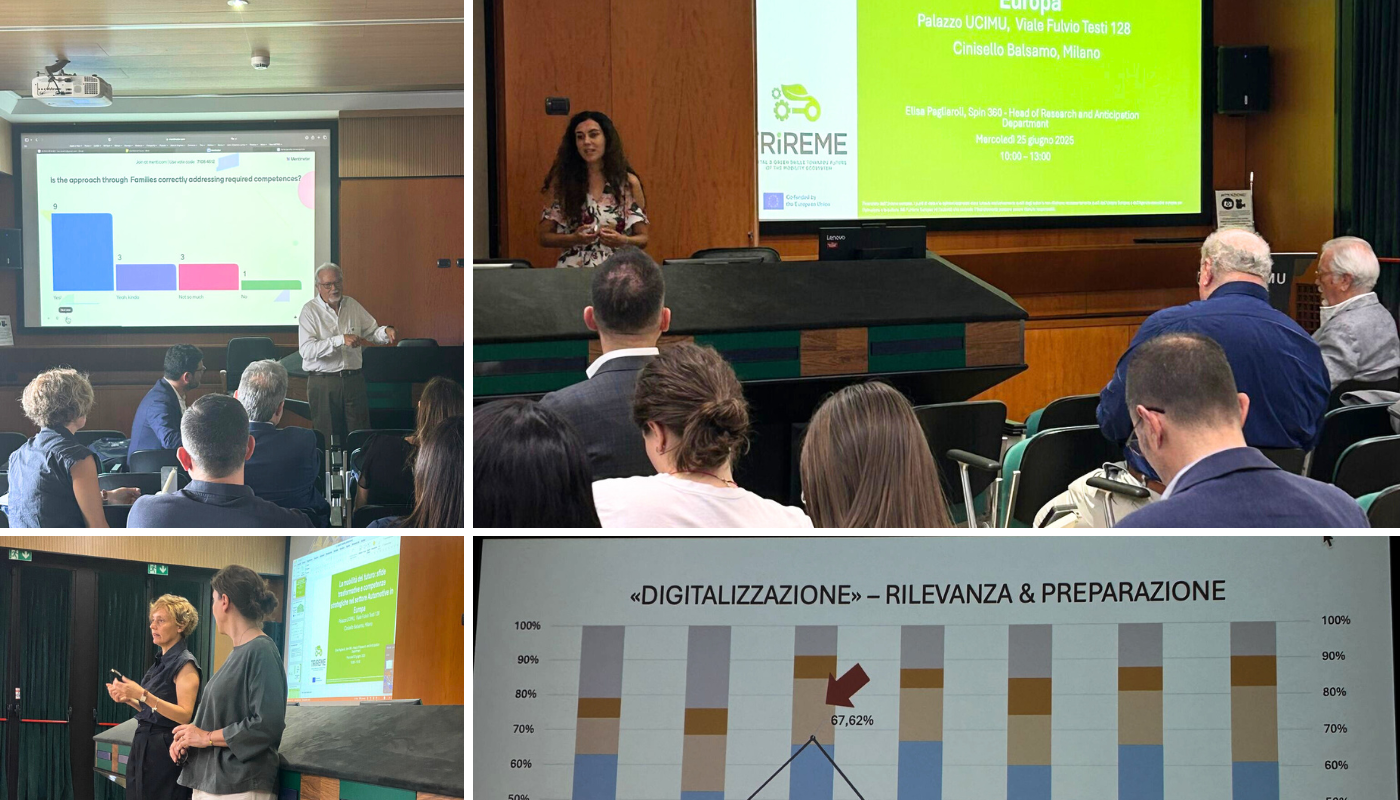
07.07.2025
Future Mobility Starts with Skills: Highlights from a TRIREME Workshop
On 25 June, Project TRIREME hosted a dynamic workshop that brought together stakeholders from the automotive, electric mobility, and training sectors to validate a shared map of the competences essential for shaping the future of mobility.
Held in a collaborative format, the workshop featured live surveys and interactive discussion sessions. Participants identified four strategic levers that are crucial to navigating the ongoing transformation of the automotive and EV industry:
- Invisible but decisive competences: Soft skills and the ability to anticipate consumer trends are now just as critical as technical expertise.
- New mobility paradigms:
- Functional: Urban, sustainable, and tailored mobility solutions
- Experiential: Innovative approaches linked to the pleasure of driving
- The paradox of regulated innovation: A balance must be struck between compliance with standards and the freedom to innovate.
- As-a-service models: Data-driven approaches and the shift from ownership to usage are reshaping the value chain, enabling optimisation of up to 20%.
The event also showcased contributions from expert speakers:
- Caterina Carroli (ECOLE – Enti Confindustriali Lombardi per l’Education) presented the H2Excellence Erasmus+ project, a Centre of Vocational Excellence (CoVE) initiative focused on green hydrogen and fuel cell competences.
- Elisa Pagliaroli (SPIN 360) shared key findings from the TRIREME survey, providing insight into the evolving skill demands across the sector.
- Leonardo Quattrocchi (SFC) highlighted how rapid technological innovation is reshaping job profiles and workforce requirements in both the automotive and EV industries.
With the participation of an ecosystem of excellence—including businesses, training bodies, and European partners such as Festo Italia, ICIM Group, Rent&Drive, Automotive Skills Alliance, and ITS Meccatronico del Lazio Academy—Project TRIREME is taking a concrete step towards building a shared, future-ready network of competences.
In summary: design for real needs, digitalise to simplify, and collaborate to evolve.
SHARE THIS ARTICLE